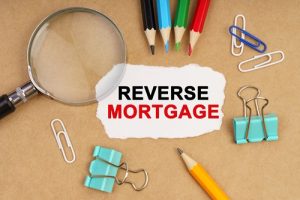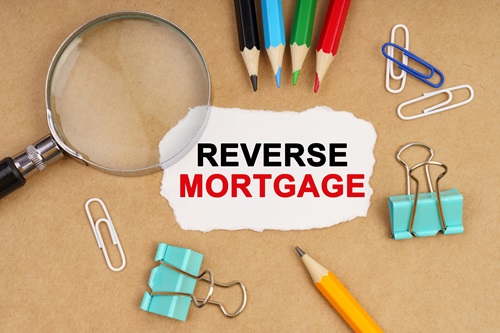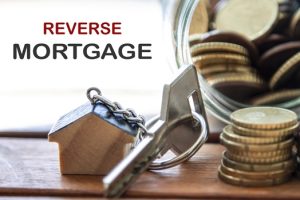
The cost of a typical single-family home in the United States has surged, making it difficult for many homeowners to access the value locked in their property. So, what are your options? Have you considered reverse mortgages?
Selling your home might be one possibility, but that’s not always ideal. If you’ve built up significant equity or fully paid off your mortgage, reverse mortgages could provide a way to tap into your home’s value without moving. However, it’s essential to understand how they work before making a decision.
How Reverse Mortgages Turn Your Home into a Financial Resource
A reverse mortgage is a loan based on the equity in your home, allowing you to convert part of your property’s value into cash. Unlike traditional mortgages, reverse mortgages work differently because, instead of making monthly payments to a lender, the lender pays you. Depending on your needs, you might choose to receive a lump sum, fixed monthly payments, or a line of credit.
One of the biggest advantages of reverse mortgages is that repayment isn’t required until you sell your home, move out permanently, or pass away. At that point, the loan balance is typically covered by the sale of the home, with any remaining funds going to you or your heirs.
Types of Reverse Mortgages
While there are different types of reverse mortgages, the most common is the Home Equity Conversion Mortgage (HECM). This option is backed by the FHA and regulated by the HUD.
In addition to federally insured reverse mortgages, some private lenders and state programs offer alternatives. However, HECM loans provide extra protection since FHA insurance ensures that heirs will never owe more than 95% of the home’s appraised value if the loan balance exceeds the sale price.
Key Factors to Consider Before Choosing Reverse Mortgages
Since reverse mortgages involve borrowing against your home’s equity, it’s important to weigh all aspects carefully. Here’s what you need to know:
Property Eligibility
Reverse mortgages in Myrtle Beach SC aren’t available for every type of home. For instance, you might qualify if you own:
- A single-family home
- A two- to four-unit property where you occupy one unit
- A HUD-approved mobile home or condominium with a permanent foundation (built after June 1976)
Age and Other Requirements
To qualify for reverse mortgages, you must meet specific criteria:
- Be at least 62 years old
- Live in the home as your primary residence
- Have no outstanding federal debts
- Complete an educational session with a HUD-approved HECM counselor
 Reverse Mortgage in Myrtle Beach SC
Reverse Mortgage in Myrtle Beach SCLoan Limits and Costs
Reverse mortgages aren’t unlimited. Each year, HUD sets a borrowing cap, which was $970,800 in 2022. However, the amount you qualify for depends on factors such as your home’s appraised value, current interest rates, and your age.
It’s also important to account for costs associated with reverse mortgages in Myrtle Beach SC. Interest rates tend to be higher than traditional mortgages, often influenced by Federal Reserve rate changes. In November 2022, fixed-rate reverse mortgages had an average interest rate of 7%, similar to standard home loans.
Additionally, you’ll need to cover expenses such as:
- FHA mortgage insurance premiums
- Closing costs
- Loan origination fees (capped at $6,000)
- Loan servicing fees
- Home insurance and property taxes
Lenders sometimes set aside a portion of the loan to ensure these costs are covered. Plus, maintaining your home is crucial since neglecting repairs could impact its value over time.
Why Some Homeowners Hesitate with Reverse Mortgages
Many people remain skeptical about reverse mortgages, often considering them a last resort. However, financial experts, including David Stacy Reverse Mortgage Specialist, emphasize that they can serve as a useful financial tool when used strategically.
In the past, one major concern involved surviving spouses. Before 2017, if a borrower passed away and their spouse wasn’t listed on the loan, they could be forced to leave the home. Fortunately, HUD changed the rules. Now, as long as the surviving spouse keeps up with property taxes and insurance, they can stay in the home, even if their name isn’t on the loan.
Financial Safety Net
For some homeowners, a huge portion of their wealth is tied up in their home rather than in retirement accounts. Reverse mortgages offer a way to access that wealth without selling the home. Since the funds from reverse mortgages aren’t considered taxable income, they provide financial flexibility without increasing your tax burden.
Some people use these mortgages as a temporary income stream while delaying Social Security benefits to maximize their payouts later. Others rely on them to cover unexpected medical expenses or supplement their retirement income.
Seeking Expert Guidance
Because these mortgages involve long-term financial commitments, seeking expert advice is crucial. HUD-approved counselors can help determine whether this option suits your needs. If you own a condominium, check if it has HUD approval before applying. Also, always work with an FHA-approved lender to ensure your loan is federally insured.
Reverse mortgages provide financial relief for many homeowners, but they also attract scammers who prey on older individuals. That’s why understanding the costs, risks, and benefits is essential.
If Social Security, pensions, or savings aren’t enough to cover your expenses, reverse mortgages might be worth considering. Your home is likely one of your biggest assets—don’t overlook its potential as a financial resource.
Interested in learning more? Call David Stacy Reverse Mortgage Specialist today to explore your options.


 Reverse mortgage in Myrtle Beach SC
Reverse mortgage in Myrtle Beach SC
 Retirement planning in Myrtle Beach SC
Retirement planning in Myrtle Beach SC
 reverse mortgage in Myrtle Beach SC
reverse mortgage in Myrtle Beach SC